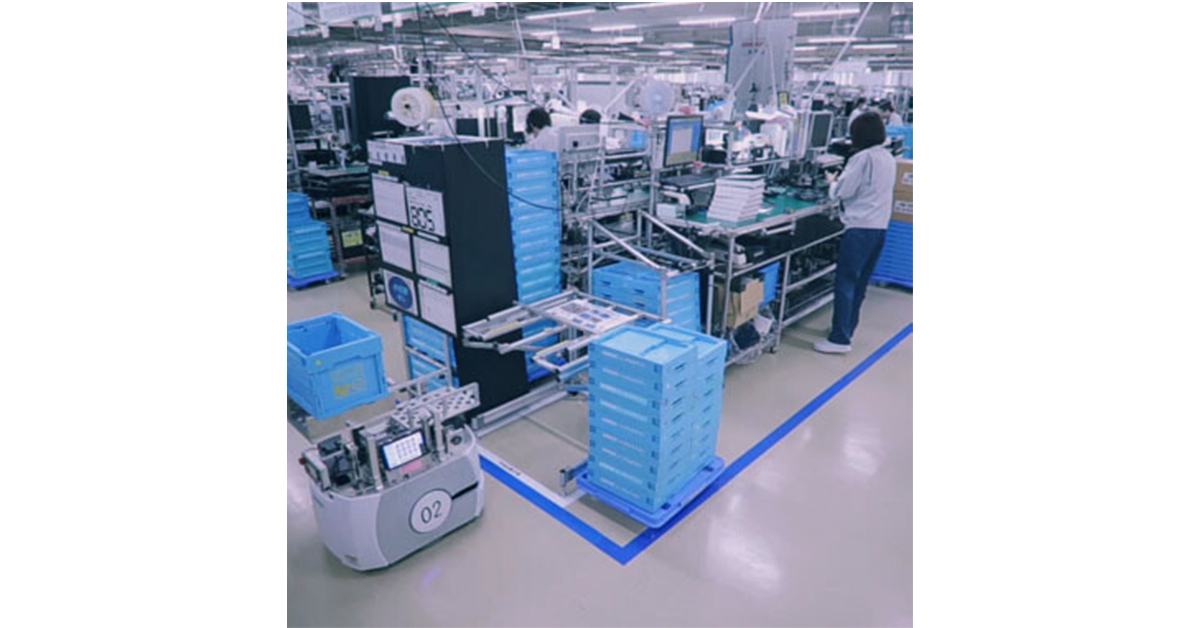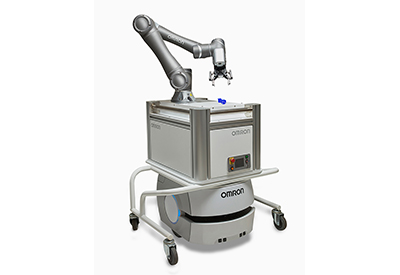How 5G Technology Can Expand Your Options for Autonomous Mobile Robots (AMRs)

January 5, 2023
The world has been abuzz for the past couple of years over the deployment of 5G (short for “fifth generation”) networks. The topic came up in a recent episode of Omron’s podcast featuring special guest Mike Chen, Omron’s Senior Director of Solutions and Technology Development, and he provided insights into how 5G could transform automation.
One thing that comes to mind is the Omron autonomous mobile robot (AMR) solution. Let’s take a look at how these robots complete their tasks and how a 5G network can enhance their operation.
The power of a mobile robot solution
Omron AMRs have proprietary software and controls that let them intelligently navigate around people and unplanned obstacles. Designed for developers, integrators, and end users, an AMR system can be customized for a variety of applications and payloads and can be fully functional within a day.
Even without a 5G network, autonomous mobile robots are an extremely versatile solution that can optimizing routing and adapts to changing conditions on the fly. These fully autonomous, intelligent vehicles increase throughput, reduce machine dwell time, eliminate errors, improve material traceability, and allow employees to focus on tasks that require complex human skills.
How 5G fits into the picture
Omron’s mobile robot technology has always been managed on a local network in a facility where everything must be on Wi-Fi and all the job assignments must be done via a Wi-Fi network. However, the space over which AMRs can be deployed will be even greater with a 5G network. In fact, 5G is expected to provide the following AMR-related benefits:
- Robot positioning improvements
- Real-time remapping
- Higher-resolution measurements
- Greater network reliability
- More devices on a single network
- Less latency
- Better security
As 5G technology becomes more prevalent in the future, Omron’s customers will be able to utilize their private 5G networks to locate every single robot on their facility and securely manage all jobs without needing to create a predefined layout. Basically, this results in a layout-free facility where customers can physically optimize their production floor while deploying AMRs.
Achieving a broader footprint
What’s great about a private 5G network is that it can be deployed with a much wider footprint. You’ll be able to deploy your robots in a wider space without having to be extremely careful about where the cutoff point is. With Wi-Fi, determining the cutoff point can require quite a bit of effort.
In addition, the built-in security measures that 5G technology enables are a major advantage. You can use the authentication function on the network to make sure that the job assignment is being presented from the right source and that you’re reaching the right robot.
















